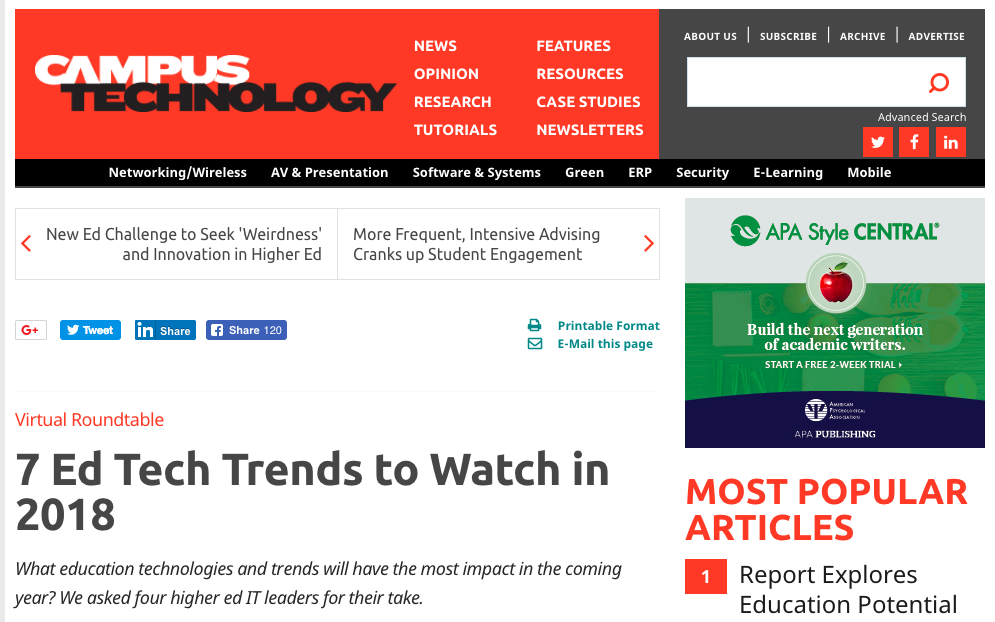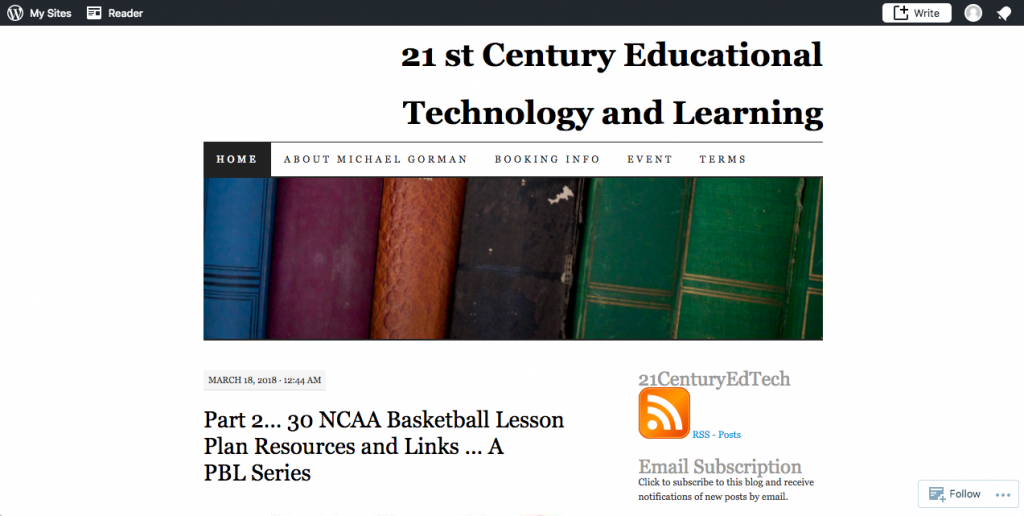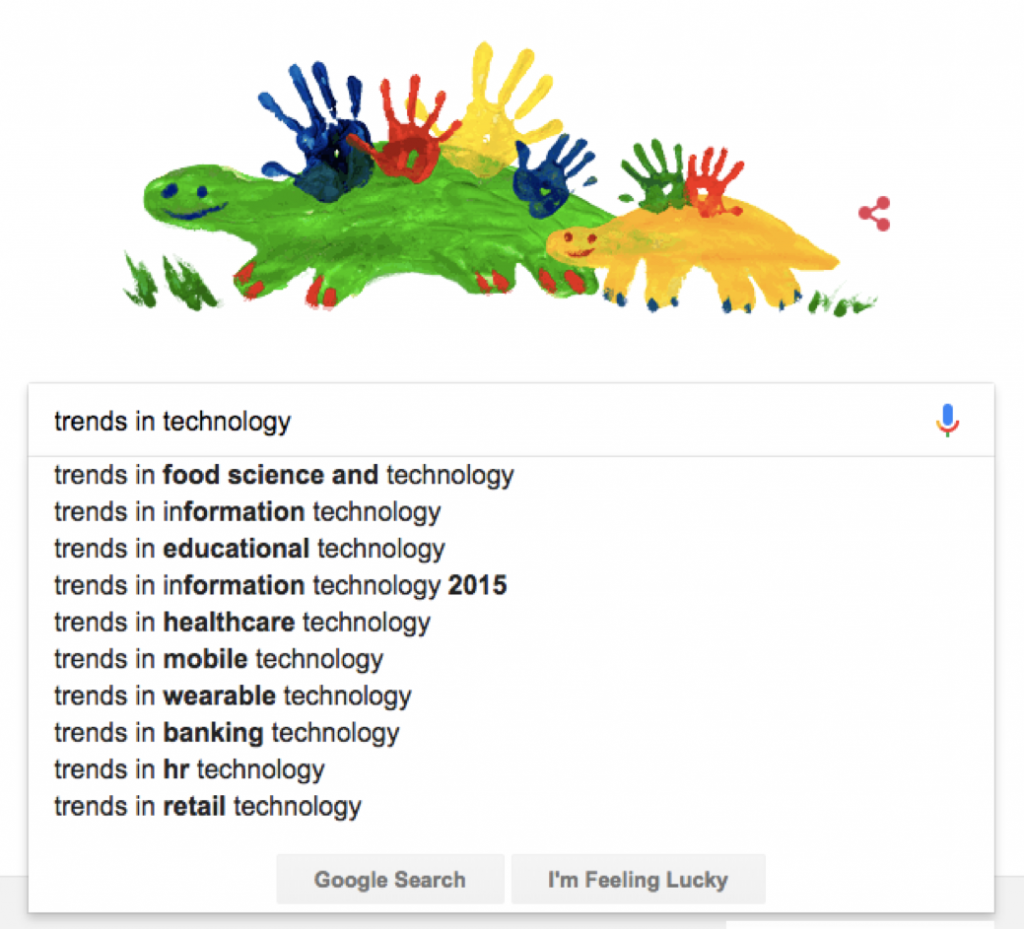Who or what are determining the trends in Educational Technology?
The what?
I started writing this post with the intention of exploring the emerging trends we are seeing in EdTech today, such as cloud based learning, AR/VR, coding as literacy and many more. I enjoyed combing through the plethora of online blogs, opinion pieces and articles about the top upcoming EdTech trends. The blogosphere provided an over whelming and diverse insight into some of technologies and ideas that are being used or advocated for in schools.
-

5 Top EdTech Trends To Watch In 2017 by Gagan Singh Shekhawat
-

Edtech 2018: 17 emerging trends by Charley Rogers
-

6 Key Trends in Educational Technology by Eden Dahlstrom
-

7 Ed Tech Trends to Watch in 2018 by Rhea Kelly
-

Class Tech Tips
-

21st Century Education Technology and Learning
The first issue I came across was defining what trend actually means. Oxford online dictionary provided three definitions and personally I find all three to mean very different things. What distinguishes a trend from being a direction of change to a short lived topic discussed online? Are the trends we are seeing in online communities like the ones referred to below, true directions of change or rather topical ideas?
trend
noun.
-
general direction in which something is developing or changing.
-
-
topic that is the subject of many posts on a social media website or application within a short period of time.
The why?

Predictive Google search options of technology trends
As illustrated in the infographic (Boundless, 2013), educational trends have been reforming and reshaping the way we teach and learn for centuries. It seems as though there are several different ideas for the future of EdTech, we are still in the piloting stages of many programs and there seems to be a lack of communication between EdTech companies & educators (Selwyn, 2016). I think to help us understand where we are heading we need to investigate how EdTech trends are established.
Technologies in all industries are rapidly developing and significant trends are starting to appear. Wearable technology in health (The Medical Futurist, 2017), connecting physical and online stores in retail (Sonsev, 2018) and artificial intelligence (AI) in banking. (Din, 2017). All of these industries have their own ‘drivers’ that are creating directional change. I would assume that industries like retail, banking and construction would have ‘drivers’ that are geared towards providing economic gains. If we were to map out how trends in other industries are emerging would we find similar drivers in education?
The how?
I believe EdTech trends need to be based on best practice. I found reports like the The Future Work Skills 2020 as beacon of hope for the future of EdTech trends. Reports like this are informing best practice and providing clear direction for EdTech stakeholders such as government bodies, educational institutions, educators and EdTech companies.
The who?
To further my exploration, I took advantage of the Twittersphere and used to find recent articles, posts and discussions. I came across an interesting article by Caroline Wright discussing how the UAE’s push for EdTech in schools is promoting collaboration between UK EdTech companies and the UAE. The article also mentions an innovative project that aims to create a ‘golden triangle’ between teachers, EdTech companies and researchers. I believe theses entities are the ones we should be turning to for direction. The ideas, products and concepts that emerge from these collaborative approaches to educational technology should be considered with due regard.
Final thoughts and questions
- Who are the stakeholders To what extent are trends in other technology industries impacting on the decisions being made in education?
- To what extent do the trends in EdTech impact on teaching and learning?
- How do you APA cite a screen shot? Is this an example of digital literacy?
References
Boundless. (2013). The Past the Present and Future of Education. Retrieved from http://blog.boundless.com/wp-content/uploads/2013/02/history_of_education_infographic.jpg.
Davies, A., Fidler, D., & Gorbis, M. . (2011). Future Work Skills 2020. Retrieved from http://www.iftf.org/uploads/media/SR-1382A_UPRI_future_work_skills_sm.pdf
Din, S. (28, December, 2017). Top bank tech trends for 2018. Retrieved from http://www.americanbanker.com/slideshow/top-bank-tech-trends-for-2018
Selwyn, N. (2016). Is technology good for education?. John Wiley & Sons.
Sonsev, V. (22, January, 2018) Retail Technology And Marketing Trends On The Rise For 2018. Retrieved from https://www.forbes.com/sites/veronikasonsev/2018/01/22/retail-technology-and-marketing-trends-on-the-rise-for-2018/#6452803f64c0.
The Medical Futurist. (2017). The 10 Best Health Technology Innovations at CES 2017. Retrieved from http://medicalfuturist.com/10-best-health-technology-innovations-ces-2017/.
Trend. (n.d.). In Oxford Dictionary Online, Retrieved March 24, 2018, from https://en.oxforddictionaries.com/definition/trend.








